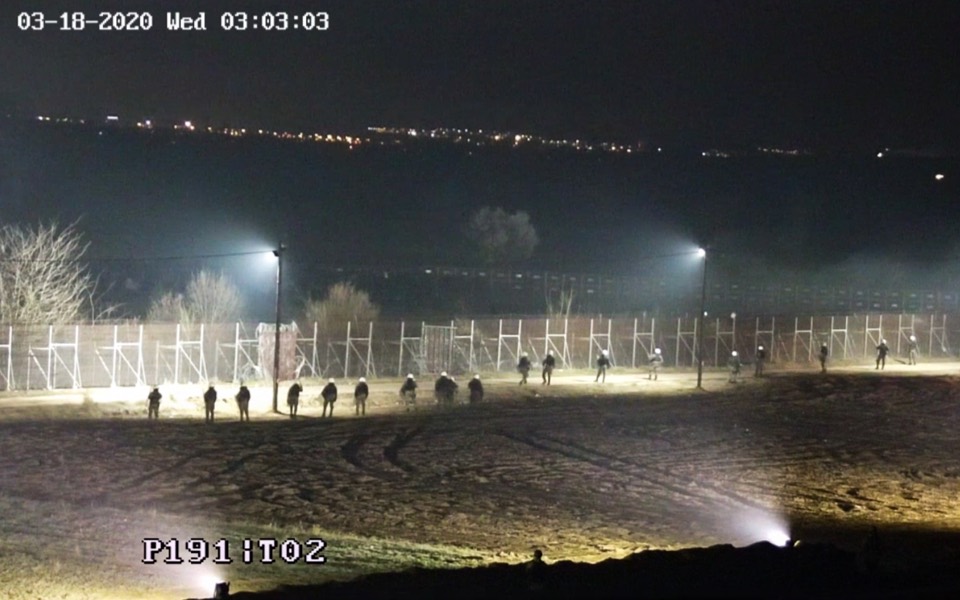The migration crisis, from a legal point of view

The United Nations Convention Relating to the Status of Refugees signed in Geneva in 1951, and amended by the Protocol signed in New York in 1967, defines a refugee as “someone who is unable or unwilling to return to their country of origin owing to a well-founded fear of being persecuted for reasons of race, religion, nationality, membership of a particular social group, or political opinion.” The Convention enshrines the rights of all refugees, globally.
The UN Convention against Transnational Organized Crime, signed in Palermo in 2000, meanwhile, sets out measures for the prevention, suppression and punishment of trafficking in persons, especially women and children, as well as for the smuggling of migrants by land, sea or air (passed in Greece under Law 3875/2010 and published in the Government Gazette under 158/A/20-9-2010). Human trafficking is defined as the “recruitment, transportation, transfer, harboring or receipt of persons, by means of the threat or use of force or other forms of coercion, of abduction, of fraud, of deception, of the abuse of power or of a position of vulnerability or of the giving or receiving of payments or benefits to achieve the consent of a person having control over another person, for the purpose of exploitation.”
The purpose of migrant smuggling is economic or other material gain from the illegal entry of an individual into a state of which he or she is not a national or resident. Illegal immigration, in short, is the illegal crossing of a border for direct or indirect gains, while the purpose of human smuggling is exploitation.
The United Nations defined the crimes of human trafficking and migrant smuggling, or the exploitation of one individual by another, as organized crime, which is one of the scourges of the 21st century. Human trafficking and migrant smuggling constitute serious threats to humanity and to human dignity. Yet they unfortunately continue to exist and to bring enormous profits to those who are systematically involved in such activities. The United Nations also defines human trafficking as a crime against humanity.
The 1998 Rome Statute, which went into effect in July 2002, is the treaty that established the International Criminal Court (ICC) at The Hague and foresees that the ICC acts as a permanent mechanism with the authority to try individuals charged on an international scale for serious crimes that pose a threat to the peace, security and prosperity of humanity. Its purpose is to ensure that international laws are respected and upheld. Paragraph 1 of Article 7 on crimes against humanity defines these as acts that are committed deliberately as part of a widespread or systematic attack directed against part of a civilian population. It also prohibits the exercise of any or all powers attached to the right of ownership over a person and includes the exercise of such power in the course of trafficking in persons, in particular women and children.
Over the past few weeks, the international community has watched in shock as Turkey has deceitfully, systematically and coercively pushed thousands of human beings, including women and children, while exploiting their desperation, to the country’s border with Greece. Even more shocking is the fact that this campaign is being conducted on the orders of the country’s highest executive authorities with the purpose of encouraging these people to cross the border into the European Union illegally. The act, which is aimed at putting pressure on the EU for economic or other gains, could potentially constitute a crime against humanity, as economic gain is being pursued by the extortion of human beings and the culpable creation of a highly volatile and potentially explosive situation which could threaten thousands of human lives, particularly as we are in the midst of a coronavirus pandemic. Such an act could and therefore should be brought before the International Criminal Court.
But this is where the paradox comes in: Turkey does not recognize the authority of the ICC and has not signed the Rome Statute. Likewise, Turkey has not signed the United Nations Convention on the Law of the Sea (UNCLOS). The reason why it hasn’t signed either agreement is evident, as Turkey’s top priority is to forward its own policies and interests, with upholding international laws coming in second. It is therefore ludicrous for Turkey to attempt to give Greece lessons in international law, while also accusing it of violating them.
A complaint filed at the European Court of Human Rights on March 5 on behalf of three Syrian nationals by a Turkish lawyer against Greece’s temporary suspension of the asylum process on March 1 on security grounds was also part of this context. The plaintiffs demanded that the court take temporary action against Greece by ruling the decision made by its Government Council for Foreign Affairs and Defense illegal.
The ECHR rejected the motion on March 6, as the present situation in Greece is entirely different to that entailed by the international framework for the protection of refugees, which is based on isolated and individual applications. Moreover, fear of persecution in Turkey is not the driving force here, but purely economic motives – a fact that stands in contradiction with the very purpose of the international laws for the protection of refugees. It is evident that what we are seeing in this particular case is the collective and organized movement of populations to the service of political expediency, something that is in clear violation of international law.
International law and conventions ensure that the individual liberties and rights of all people are upheld, but they cannot force a nation to endanger its own existence. They are there to safeguard human rights, not to tear states apart.
Every state has the right and the duty to protect its borders and to ensure its citizens’ safety and security. Some say that when you abolish national borders you put up walls. They are right.
Vassilis Floridis is an appeals court prosecutor.




